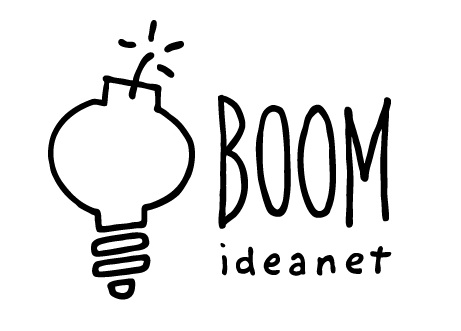 “To have a great idea,” Thomas Edison – possibly America’s greatest inventor – proposed, “have a lot of them.”
“To have a great idea,” Thomas Edison – possibly America’s greatest inventor – proposed, “have a lot of them.”
“If you want to have good ideas,” Linus Pauling – renown scientist and only person to ever win two unshared Nobel Prizes – recommended, “you must have many ideas. Most of them will be wrong, and what you have to learn is which ones to throw away.”
Granted, this sound advice should be taken with a grain of 21st century salt. While these may have been two of history’s greatest minds, neither gentleman invented Uber…or, for that matter, even just “the Uber of something”; nor did either live in an era when they could’ve merely proposed, “Ideas? Easy. Google it.”
And, thus, following such facile and modern-day direction one discovers the wisdom of Wily Walnut and “10 Things to Do When You Need Ideas Fast!” Mr. Walnut’s initial sage nugget:
1. Breathe and get into state! You are a genius.
Attention Uberpreneur: Don’t overestimate this glowing assessment; the same man who deemed you a genius felt it necessary to remind you to breathe straight out of the gate.
Speaking from experience, one need not be brilliant to remember to breathe or even to realize that if we all were, indeed, geniuses then the distinction and the very term to describe it never would’ve been necessary. Suddenly, to err is no longer human, to be a genius is.
“You are a genius, so move, breathe and act like one! It’s easy for someone like you to generate ideas – you are an Ideas Person!”
God bless Google…not only am a genius, I’m an Ideas Person!
If only we could believe everything we read on the internet…if only more people realized we couldn’t…yet, even though we know better, it’d be difficult to deny our current collective philosophy – More! Better! Faster! Cheaper! – aligns far more fluidly with Wily’s wisdom than with Edison’s and Pauling’s disciplined, proven, and synonymous approaches.
Of course, we’re all mostly defined by the state of our era and its inherent limitations…well, most of us “geniuses” are, anyway. True genius defies supposed restraints, persistently asks “What if…” and eventually topples barriers, expands horizons, and recalibrates the limitations that define the rest of us. Be that as it may, and for all we owe the true genius of Thomas Edison (1847-1932) and Linus Pauling (1901-1994), neither esteemed mastermind benefitted from the abundant technology that defines our era.
To put it in perspective, the output of a 1950 forty-hour workweek only took 29 hours to duplicate in 1990. By 2015 that same production could be accomplished in merely eleven hours. It took the first forty years to improve by eleven hours, yet over the next twenty-five years we progressed to the point where the total output could be completed in only eleven hours. Eleven. Hours. Awesome…in it’s purest sense…intoxicatingly so…which might explain why we began to confuse this drastic and seemingly unfathomable advancement for our own personal evolution. We have the technology…we have the capability… we are better than we were before…better, stronger, faster. At everything.
Linds Redding – a former Art Director and unfortunate cancer casualty – kept a journal in which he attributed the origin of our misconstrued evolution and false feeling of bionic prowess to the moment when “the bean counters upstairs quickly realized we could just do three times as many jobs in the same amount of time, and make them three times as much money.”
“Time moved on…technology overran, and transformed the creative industry like it did most others. Exciting new tools. Endless new possibilities. Pressing new deadlines… As fast as we could pin an idea on the wall, some red-faced account manager in a bad suit would run away with it. Where we used to rely on taking a break and ‘stretching the eyes’ to allow us to see the wood from the trees…we now fell back on experience and gut-feel. It worked most of the time, but nobody is infallible…generally standards plummeted.”
It doesn’t take a rocket scientist (though, like Edison & Pauling, they recognize the power of mass input) to detect an indirect correlation between the technological revolution – the supreme intellect it’s bestowed each of us – and these plummeting standards. Of course, when considering the billion dollar valuations of companies at the forefront of this revolution, it’s hard to blame the bean counters, or damn-near anyone, for putting their standards on hold, or even up for sale, in an attempt to cash-in.
And thus driven by a desire to capture a unicorn, fortified by time-slaying technological tools, and tempered by a constantly imminent deadline…if we don’t do it someone else will…we prioritize ‘faster’ convinced speed will breed ‘more’ and ‘better’…or, at the very least, compensate for them. We debunk and dismiss Edison’s and Pauling’s wisdom as outdated advice from a seemingly prehistoric time handicapped by analog thought.
In the process we handicap ourselves and relinquish the true power technology has bestowed on us – tools that improve our vision to mine, recognize, and develop the best ideas; ideas that move us collectively forward while maintaining a set of standards to optimize that momentum. Otherwise, as Mr. Redding noted, “That one thing that we prize and value above all else – the idea – turns out to be just another plastic gizmo or widget to be touted and traded.” It was this very assessment that led Mr. Redding to the sobering revelation: “I think I’ve come to the conclusion that the whole thing was a bit of a con. A scam. An elaborate hoax.”
Everything starts with an idea; to have a great one, have a lot of them. Armed with ample ideas you can do what you do best, whatever that is…like Edison, Pauling, or even Redding…to make something ‘better,’ ‘faster,’ ‘smarter.’ Earnestly addressing these goals fosters palpable value – something with far greater reach and lasting impact than ‘cheaper.’
Then, take a deep breath and get into state, you’re truly a genius.
-Gooch Denice, Relationship Director at Boom Ideanet










